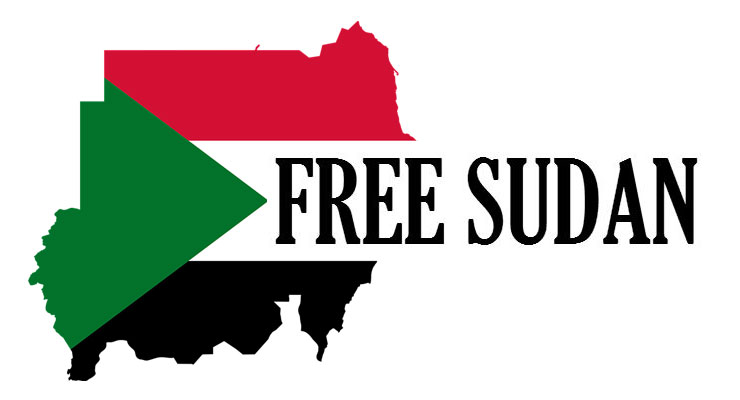
From Voice Of America. Naba Mohideen contributed to this report from Khartoum; Margaret Besheer from New York and Salem Solomon from Washington:
—
A plan by Sudan’s military to take over the country’s government is getting a cold reception from protesters and the international community, who want to see the African nation take steps toward democracy.
Sudan’s defense minister announced the takeover on state television Thursday, after the army ousted the country’s longtime president, Omar al-Bashir, following months of demonstrations against his 30-year iron-fisted rule.
Awad Mohamed Ahmed Ibn Auf said a transitional military council will run the government for the next two years. He declared a three-month state of emergency, the suspension of the constitution and the dissolution of parliament.
Earlier, a Sudanese military source told VOA that al-Bashir, 75, has been put under house arrest.
Protesters want civilians in charge
Many protesters, initially excited by the fall of al-Bashir, became angry when they realized Sudan would be under military rule. New demonstrations broke out Thursday afternoon in the capital, Khartoum.
One protester, Suha Ahmed, said Bashir opponents will not accept two more years of military rule. “After 30 years of the rule, we’ll still be at a sit-in, until our demands are responded to with a transitional civil government, for a free, democratic, stable Sudan,” she told VOA.
“The army announcement was disappointing,” said another protester, Mohamed Ali. “Because it didn’t fulfill all missions of the revolution, I ask protestors to sit-in in front of army headquarters till the achievement of Sudan’s revolution,” he said.
Protester Mutaz Mohamed noted that Defense Minister Ibn Auf, like al-Bashir, has been accused of war crimes in Sudan’s Darfur region.
“Ibn Awf is wanted by the ICC [International Criminal Court]. How come you replaced a wanted one with another wanted one?” he asked.
The Sudan Professionals Association was one of the key organizers of the recent anti-Bashir protests. Spokeswoman Sarah Abdeljalil, who is based in the United Kingdom, says the SPA is not optimistic about Thursday’s events.
“We don’t think that anything has happened that is positive,” she told VOA. “It’s a regression rather than progression. It’s a coup. We have never supported a coup. We were very clear in our statement for the last three to four days that we would never support a coup. We will support a military council that will work in parallel to the civil government in the transitional period.”
International disapproval
In Addis Ababa, Ethiopia, the chairperson of the African Union Commission, Moussa Faki Mahamat, said “the military takeover is not the appropriate response to the challenges facing Sudan.” He urged all parties to remain calm and exercise restraint.
The United Nations Security Council is due to hold closed-door talks about the Sudan situation on Friday. Britain’s deputy ambassador to the U.N., Jonathan Allen, condemned the military’s transition plan as inadequate.
“We need to see much faster transition. We need to see civilian rule now. That’s what the protesters have been calling for and that is what we need to do,” Allen told reporters.
Professor Hassan Hajji, a political science lecturer at the University of Khartoum, said Sudan’s next rulers will face some major challenges.
“First we have the economy which has deteriorated in the last year or so. This is the main concern now for most of the Sudanese people, how to meet their minimum needs for the families,” said Hajji. “The other challenge is … how to bring the military groups in Darfur and in the Nuba Mountains and in the Southern Blue Nile to the peace process. How to maintain peace in Sudan is also another challenge for the coming military rule.”
Hajji said he doubts the now ex-president will be sent to the ICC for trial.
“In Sudan, a large number of people, they want other ways of settling the grievances that took place in the previous era,” he told VOA. “Some people are suggesting that we should follow South Africa’s path or the Moroccan, or perhaps Truth and Justice [Commission], where people will try to solve this by traditional Sudanese and African means.”
Leave a Reply